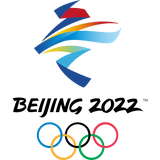





































































































































Pegasus races to ban medication, offer lower purses
The Pegasus World Cup races at Gulfstream Park in Hallandale Beach, Florida, next month will require horses to be medication-free on race day and will have substantially reduced purses from the previous three editions of the event.
The Stronach Group, which operates Gulfstream, announced the significant changes Sunday. Entry fees, which had been as much as $1 million for past runnings of the Pegasus, will be waived. This year’s purses will be $3 million for the Pegasus dirt race and $1 million for the Pegasus turf event.
“The Pegasus World Cup Championship Invitational Series is evolving toward a single goal — to provide a level of safety deserving of every horse and every rider, reflecting the new standard of care, on race day and beyond, while providing a lucrative opportunity for horse owners,” Stronach’s CEO of Racing Craig Fravel said.
It’s still lucrative — just not as lucrative.
The inaugural Pegasus in 2017 was then the world’s richest race, offering a $12 million purse to owners who put up $1 million for a spot in the field. The purse went to $16 million in 2018. And last year, the turf race was added, so purses went to $9 million for the dirt race and $7 million on the grass.
The moves come in response to some of the rising criticism the sport has faced over the past year — particularly after 37 horses died at Santa Anita, another track operated by The Stronach Group, since last December. Those deaths have sparked at least two investigations in California, including one by the Los Angeles County District Attorney’s Office.
The banning of race-day medication has been a major topic within the sport for some time as well, and a movement is afoot to phase it out gradually. Starting next month, 2-year-olds at many U.S. tracks will not be permitted to take the commonly used diuretic Lasix within 24 hours of racing. Lasix is given to horses to prevent bleeding, though most international tracks do not allow it to be taken on race days.
By 2021, the Triple Crown races also will have the no-medication-on-race-day rules as well.
“We are investing in the future of our sport by creating new opportunities for horsemen and horses to run without medication,” said Belinda Stronach, The Stronach Group’s Chairman and President.
Gulfstream will come out with an invitational list for the races on Jan. 5.
Mike Lakow, the vice president of racing at Gulfstream, said he was “very skeptical” of the changes when they were first presented.
“The more I sat back, the more I found it very interesting,” Lakow said in a televised interview on TVG from Gulfstream on Sunday. “I started calling trainers. I spoke to about 70 trainers. ... I asked them if they were uncomfortable running without Lasix, running without medication. And it was amazing how everybody said ‘yes, we have no issue with it at all for this race.’”
The Stronach Group also said Sunday that it will donate $80,000 from next year’s Pegasus purses to Thoroughbred Aftercare.
Pegasus day at Gulfstream is Jan. 25.
